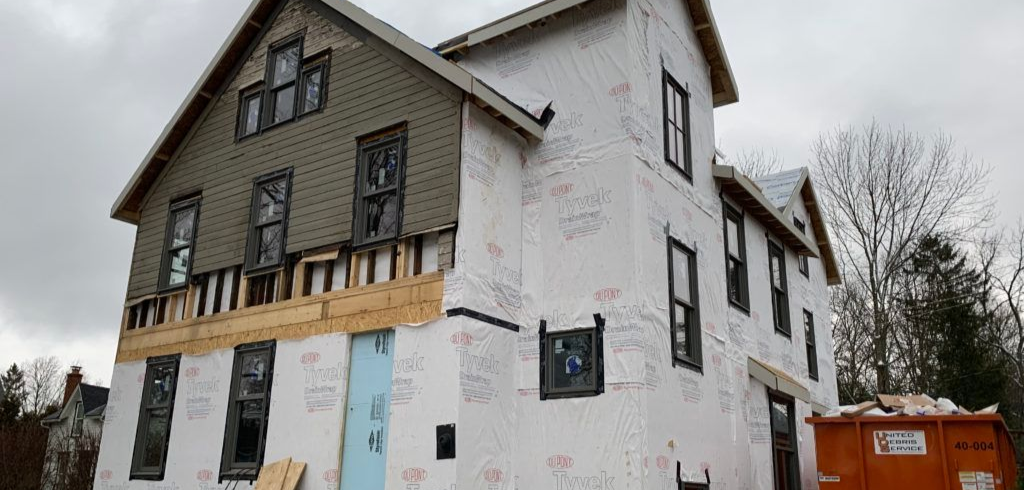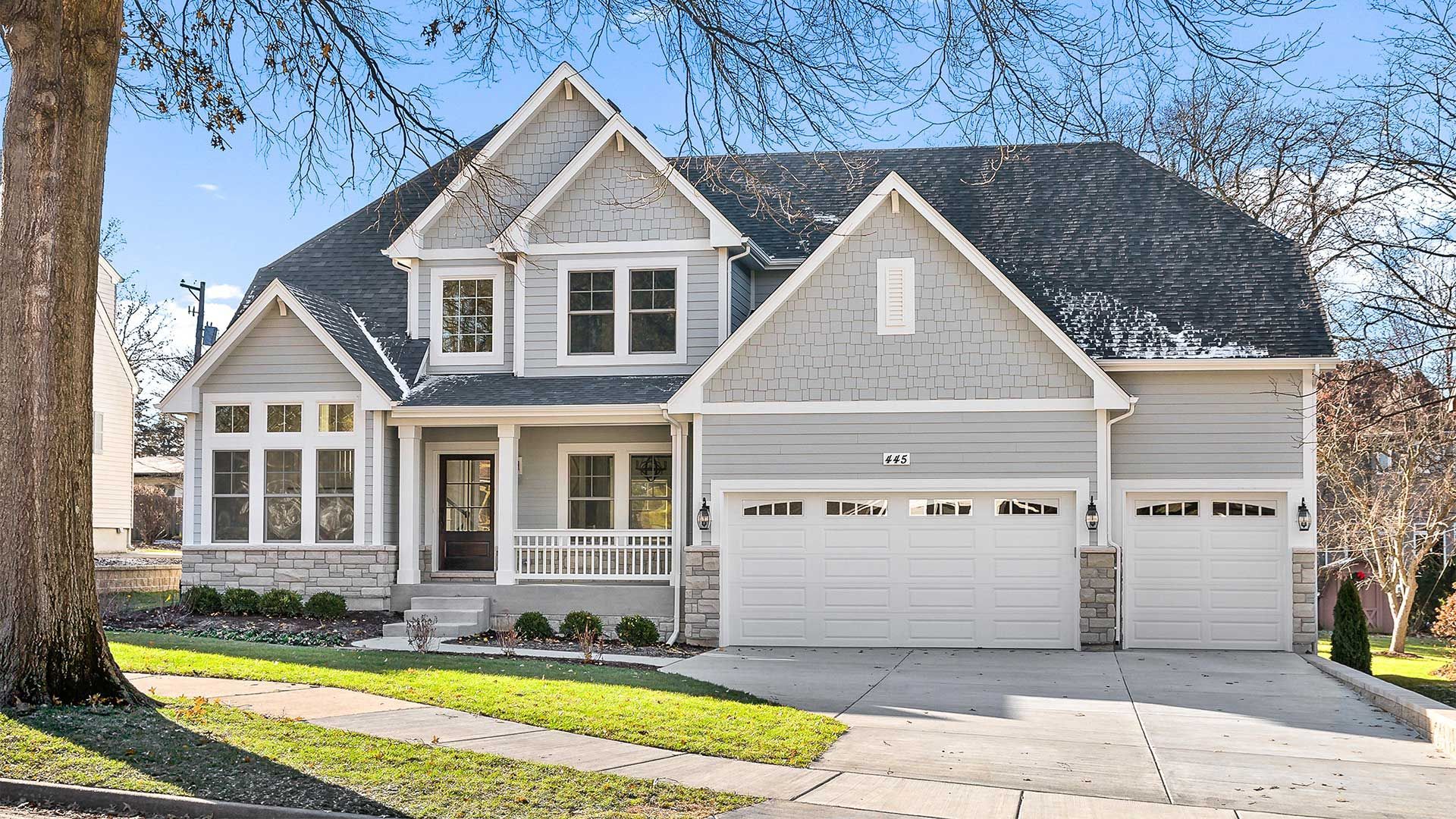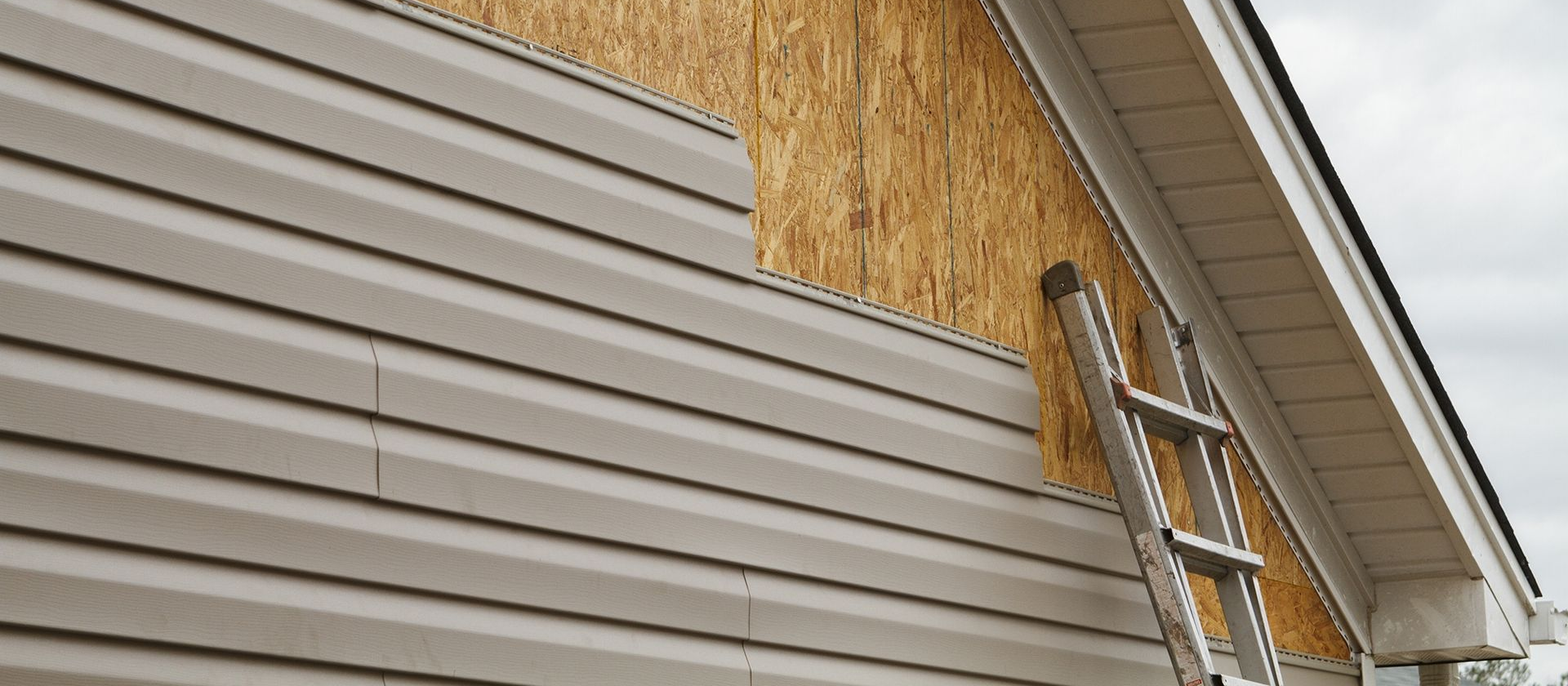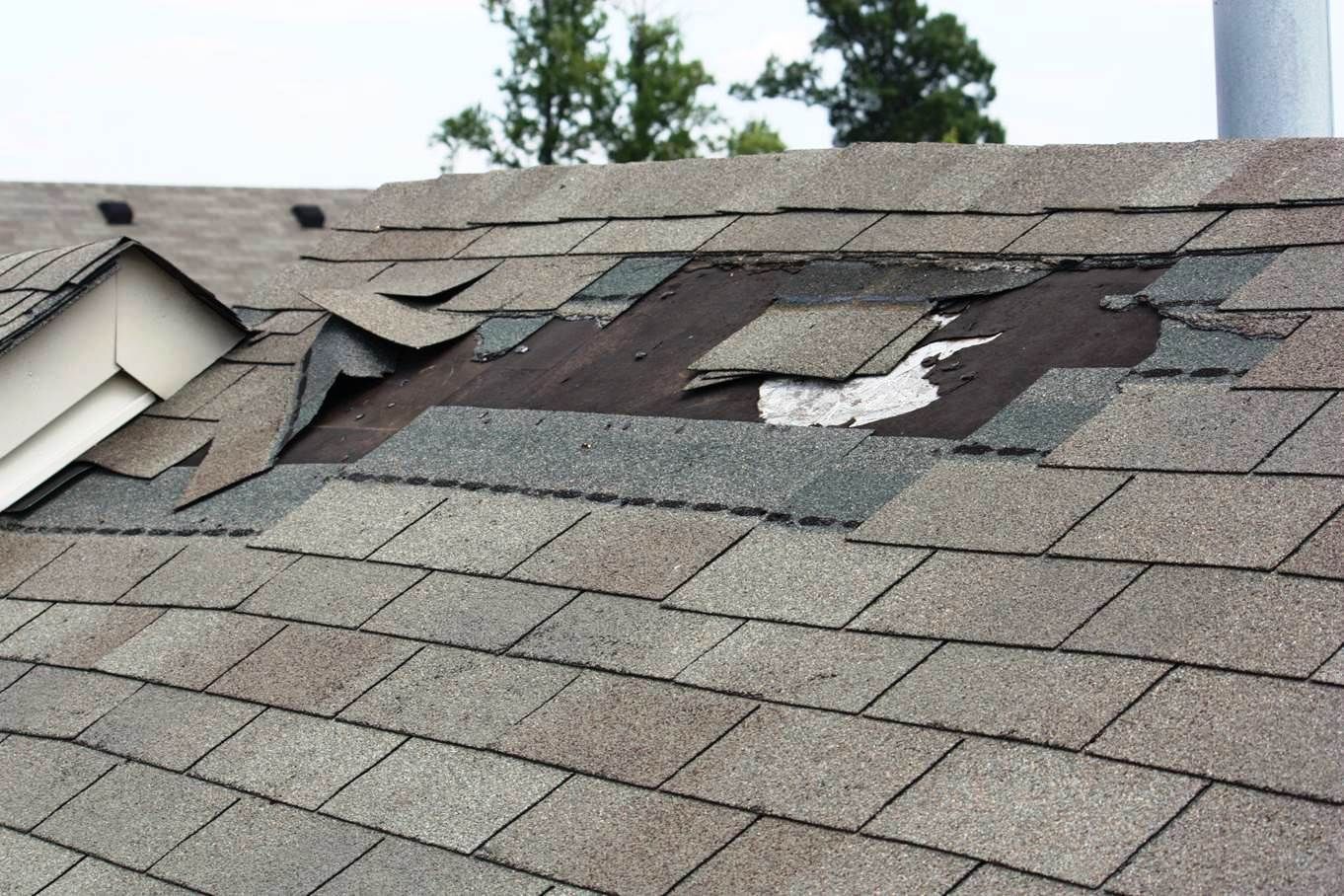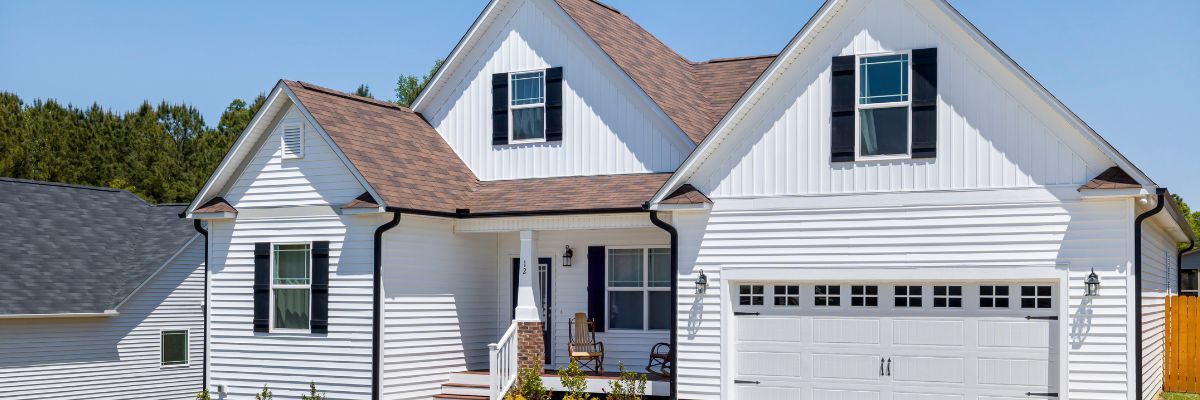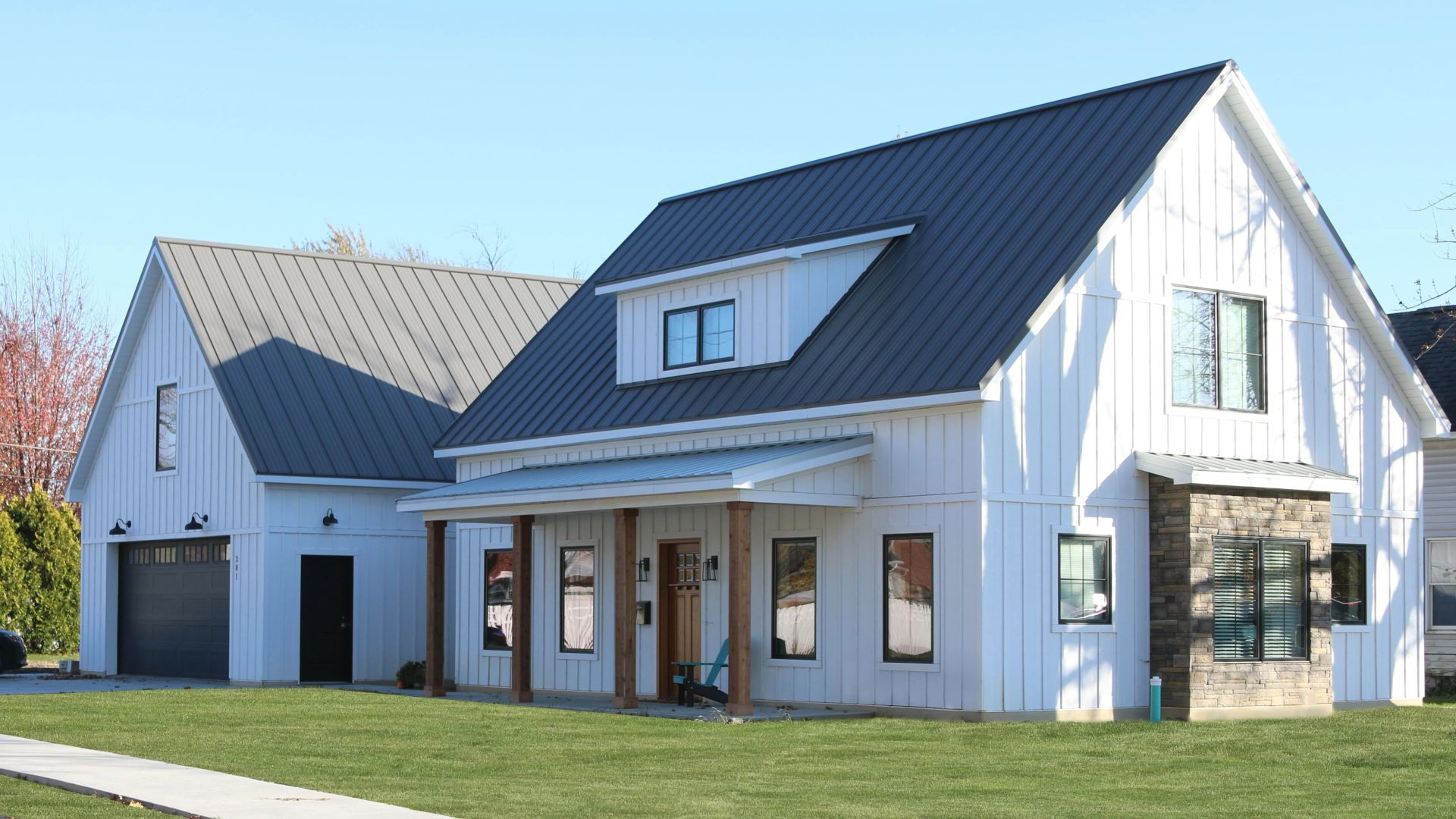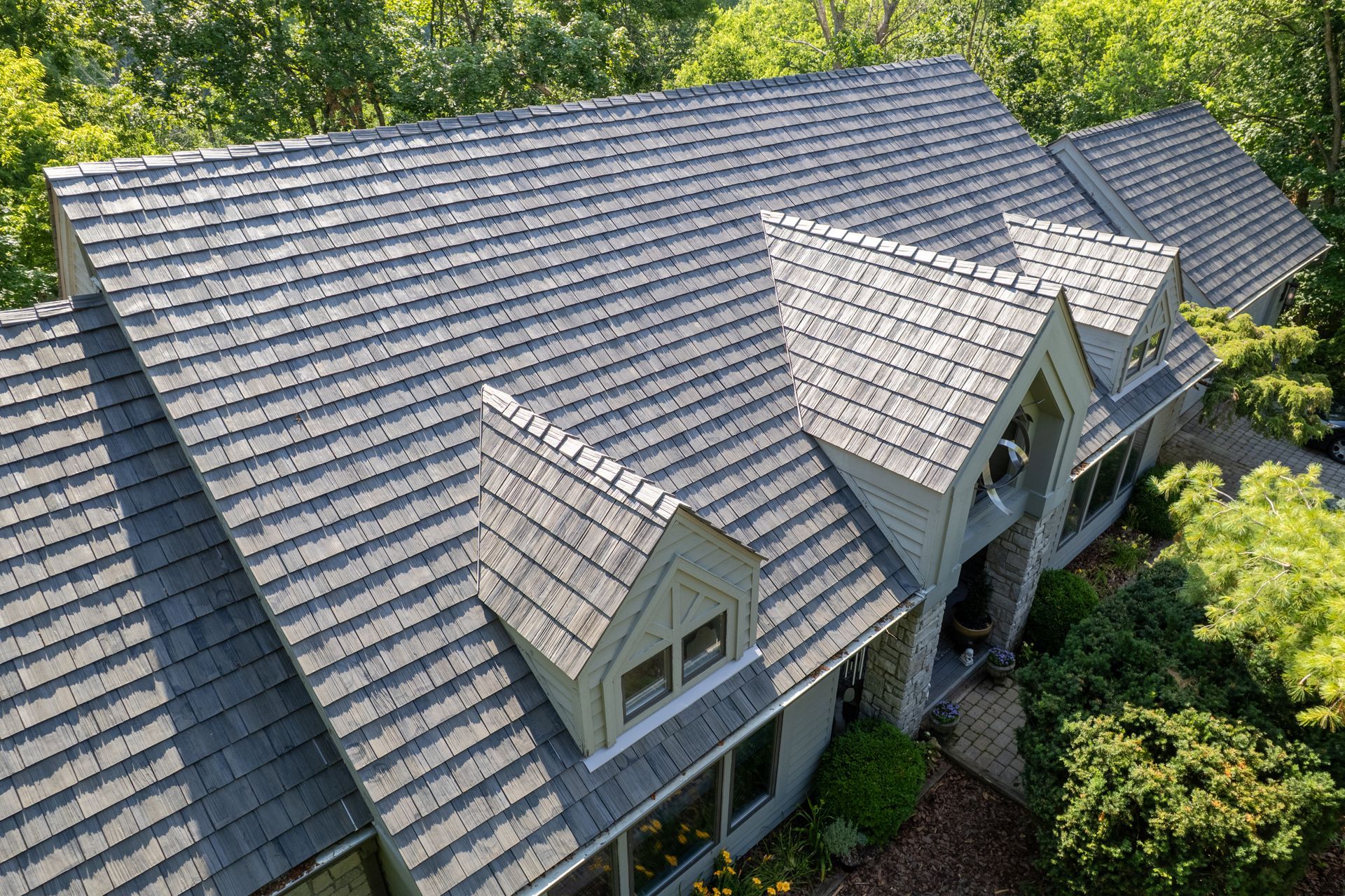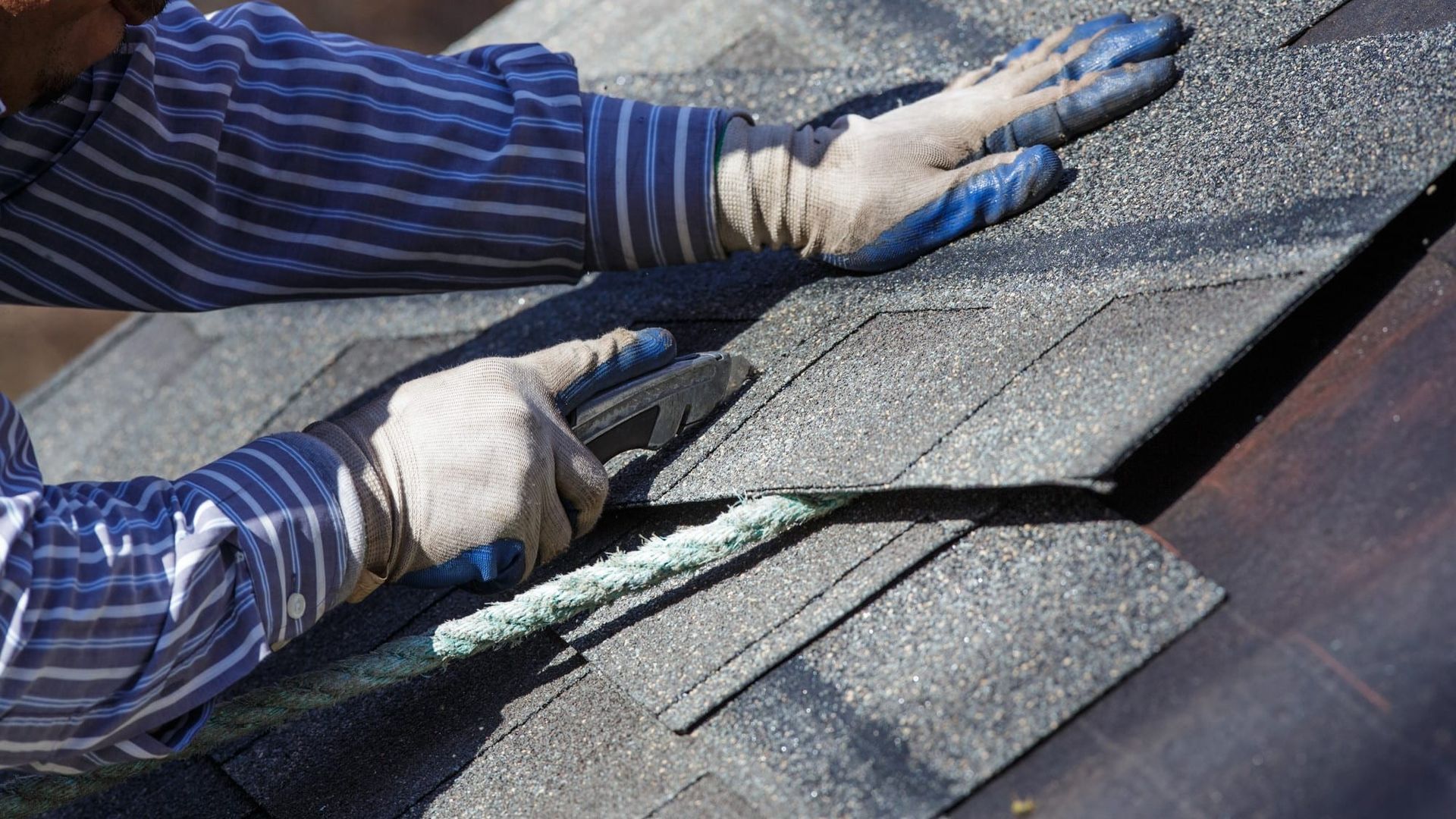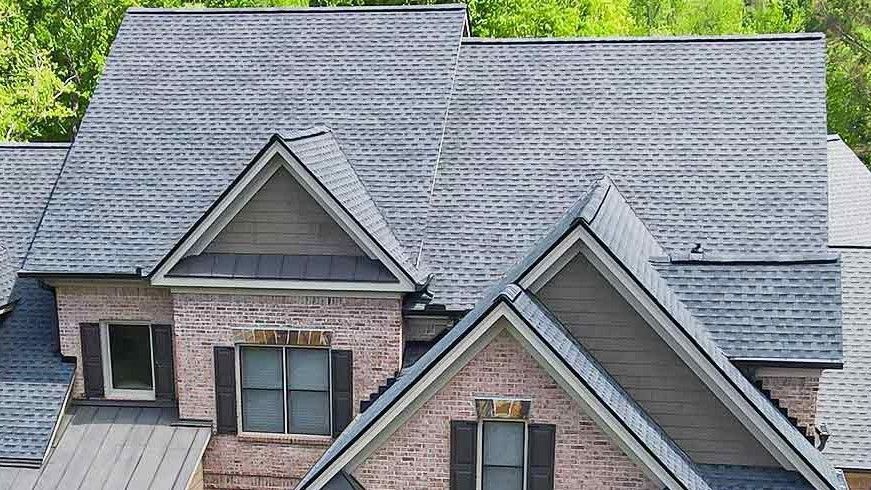A Complete Buyer’s Guide to Synthetic Slate Roofing: Brand Comparisons, Installation Tips, and Why Brava Roof Tile Stands Out
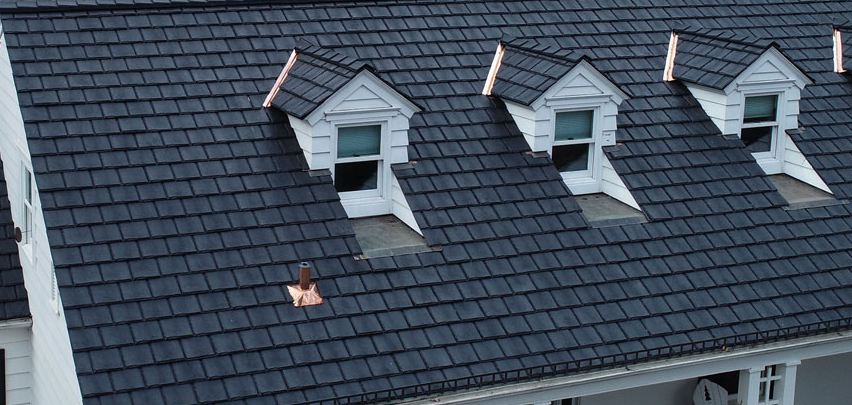
Thinking about the look of natural slate without the weight, fragility, and cost? Synthetic slate has come a long way in the last decade. This guide breaks down how it’s made, how it stacks up against real slate, the best brands on the market (and why we recommend Brava Roof Tile for most homes), plus why your installer matters just as much as the product.
Quick Takeaways (Fast Facts for Homeowners)
- ✅ Slate look, modern strength – Synthetic slate mimics stone without the weight or fragility.
- ✅ Brava Roof Tile = best overall – Class 4 impact, wind-tested to 211 mph, 50-year warranty, unmatched color realism.
- ✅ Synthetic vs natural slate – Natural is heavy, brittle, and costly; synthetic is lighter, stronger, and easier to install.
- ✅ Certified installer required – Always use a preferred contractor to keep warranties valid and ensure proper installation.
- ✅ Go local, not national – A Northeast Ohio roofer understands freeze-thaw cycles, snow loads, and codes better than any out-of-town chain.
What is synthetic slate?
“Synthetic slate” (also called composite or polymer slate) mimics the look and shadow lines of quarried slate using advanced polymers or recycled rubber/plastic blends. Compared to stone, these tiles are lighter, more impact-resistant, and easier to install—and modern color processes make them convincing from curb distance. Brands like Brava (composite), DaVinci (composite), EcoStar (recycled rubber/plastic), and Euroshield (recycled rubber) each take a slightly different material approach, but all target slate’s signature profile with less weight and fuss.
Synthetic Slate vs. Natural Slate
Appearance
High-end synthetics now reproduce slate’s cleft texture, deck-irregularity, and color variation with excellent realism. Brava’s process, for example, produces multi-color, through-body variegation (color runs through the tile), which helps hide scuffs over time and deepens the “stone” look.
Weight & structure
Natural slate is heavy—often ~8–10 lb/ft² (roughly 800–1,000+ lb per 100 ft²), and premium thick slates can be far heavier. Many existing roofs need structural evaluation or reinforcement. Synthetic slate dramatically reduces dead load.
Durability & impact
Top synthetic lines carry Class 4 impact (the highest under UL 2218), a strong hedge against Ohio hail. Natural slate is hard but brittle—individual pieces can crack from impact or foot traffic and are more exacting to repair.
Fire & wind
Leading synthetics can be installed to Class A or Class C fire assemblies (check the specific product and underlayment) and carry wind testing from ~110 mph (common) up to 188–211 mph for certain Brava assemblies. Natural slate can also perform well, but attachment details and weight matter.
Cost & installation
Stone slate is one of the most expensive roofs once you include materials, specialized labor, and any structural work; synthetics usually install faster with more widely available crews. (Exact pricing varies by roof complexity and market.)
Brand Comparison (What We Install and See Locally)
| Brand | Material | Impact Rating | Fire | Wind Info | Warranty | Notables |
|---|---|---|---|---|---|---|
| Brava Old World Slate | Composite (recycled content) | Class 4 | Class A or C (assembly-dependent) | Tested to 188–211 mph depending on fasteners | 50-year limited | 1" thick profile; through-body variegated color blends; ~339 lb/square weight (light for the look). |
| DaVinci Slate | Composite | Class 4 | Class A | Rated to 110 mph | Lifetime limited material | Multi-width/single-width options; broad color palette. |
| EcoStar Majestic/Empire Slate | Recycled rubber + plastic | Class 4 | Class C (many assemblies) | Up to ~110 mph (per ASTM D3161) | Up to 50 years | Cool-roof color options; Gold Star contractor program for enhanced warranties. |
| Euroshield (Vermont Slate HP, etc.) | Recycled rubber | Class 4 | (varies) | (varies) | Up to 50 years; hail-specific coverage on some lines | Ultra-hail-resistant focus; 95% recycled content. |
Why We Favor Brava Roof Tile for Most Ohio Homes
- Best-in-class realism
Brava’s proprietary, through-body multi-color technology creates convincing slate variation that doesn’t “wear off,” paired with a thick 1" profile for deep shadows and crisp edges. It’s hard to tell from stone at curb distance. - Top performance envelope
Class 4 impact, Class A/C fire assemblies, and wind testing to 188–211 mph (depending on fastening/high-wind install) make Brava a strong choice for Northeast Ohio’s wind, hail, and freeze-thaw cycles. - Lightweight without looking thin
Spec sheets list ~339 lb per square for Old World Slate—dramatically lighter than stone while still appearing substantial on the roof. - 50-year limited warranty (transferable once in the first 25 years) from a U.S. manufacturer.
- Color flexibility
From standard hues to virtually endless custom blends, Brava’s color program helps match historic neighborhoods or HOA palettes.
Why Your Installer Matters (No Matter the Brand)
A premium product underperforms if it’s not installed to spec. Preferred/certified contractor programs exist for a reason:
- Training & oversight. Brava supports Preferred Contractors with product training and technical support. DaVinci’s Masterpiece Contractor and EcoStar’s Gold Star programs also vet installers and can unlock enhanced coverage.
- Better warranty pathways. Many manufacturers tie their strongest warranties (or labor coverage) to certified installers and documented assemblies.
- Brand-specific details done right. Proper starters, hip/ridge accessory pieces, fasteners, exposure, and high-wind detailing can be brand- and model-specific—trained crews get those right the first time.
Local Roofer vs. National Chain: What You Gain Locally
- Ohio-specific design. We build assemblies for lake-effect snow, freeze-thaw, and wind exposure, and we know local code/permit nuances across Summit, Cuyahoga, Medina, and surrounding counties.
- Supply chain + service speed. Local relationships mean faster material turns and quicker storm response.
- Accountability you can visit. You can see our work on homes in Twinsburg, Solon, Hudson, Westlake, Strongsville, and beyond—then talk to real neighbors.
- Lifecycle partnership. Post-storm inspections, seasonal maintenance, and warranty service are easier with a team nearby.
(Hometown Roofing & Construction is a Brava Preferred Contractor serving Northeast Ohio.)
How to Choose the Right Synthetic Slate (Step-by-Step)
- Start with an inspection + load check. Even lightweight systems need a sound deck and ventilation plan.
- Pick your profile. Decide between multi-width for a more organic slate pattern or single-width for a clean, uniform rhythm.
- Dial in color. Ask for physical samples. If you’re near historic districts or have HOA rules, confirm approved palettes—Brava’s custom blends can help match.
- Confirm performance to your site. We’ll match product + fastening to wind zone and roof geometry (hips, valleys, dormers).
- Accessory system. Use the branded hip/ridge, starters, and flashings intended for the system for looks and warranty compliance.
- Warranties in writing. Review manufacturer and workmanship warranties together; some enhanced coverages require certified installers or specific underlayments.
- Plan for ventilation and ice-dam defense. Balanced intake/exhaust ventilation and proper underlayment strategy are essential in Northeast Ohio.
- Ask about walkability and maintenance. Synthetic slate is generally more walkable and easier to repair than stone; confirm best practices with your installer.
FAQ
How long will a synthetic slate roof last?
Top products list
50-year limited or
lifetime limited material warranties (brand-dependent). Real-world life depends on assembly, exposure, and workmanship.
Will synthetic slate look “plastic” up close?
Quality matters. Premium tiles like
Brava Old World Slate use deep molds and through-body blends for realistic cleft texture and color variation, plus a
1" profile that mimics stone shadows.
Do I need to upgrade my framing?
Usually not with synthetics due to the lighter weight, but we still check the deck and structure as part of our evaluation—especially on older homes. For reference,
natural slate often runs ~800–1,000+ lb per square.
What about hail and wind here in Ohio?
Look for
Class 4 impact and wind testing appropriate to your site. Brava’s assemblies test to
188–211 mph with specific fasteners; DaVinci lists up to
110 mph; EcoStar lists
~110 mph assemblies. We’ll spec accordingly.
Is fire rating the same across brands?
No. Ratings depend on the
entire roof assembly (tile + underlayment + deck). For example, Brava offers
Class A or C depending on assembly; DaVinci lists
Class A; EcoStar commonly lists
Class C.
Can synthetic slate be used on low slopes?
All brands specify minimum slopes—your exact roof pitch will determine eligibility and detailing. We verify against the current install manuals.
Our Recommendation
For most Northeast Ohio homes seeking the timeless slate look with modern performance and minimal structural hassle, Brava Old World Slate delivers the strongest combination of realism, ratings, wind performance, and long warranty—and it installs beautifully in multi-width layouts for that classic slate pattern.
Ready to Compare Options on Your Home?
Hometown Roofing & Construction can bring full-size samples, model color blends on your home, and price out multiple assemblies (Brava, DaVinci, EcoStar) apples-to-apples. As a Brava Preferred Contractor serving Northeast Ohio, we install to manufacturer specs and back it with local craftsmanship and service. Book a no-pressure roof assessment and written proposal—let’s make the slate look happen without the slate headaches.
Citations
- Brava Roof Tile. Old World Slate Specifications. Retrieved from https://www.bravarooftile.com
- Brava Roof Tile. Old World Slate Product Details & Warranty. Retrieved from https://www.bravarooftile.com/resources
- DaVinci Roofscapes. Slate Product Information. Retrieved from https://www.davinciroofscapes.com
- DaVinci Roofscapes. Warranty Information. Retrieved from https://www.davinciroofscapes.com/support/warranty
- EcoStar. Majestic Slate & Empire Slate Specifications. Retrieved from https://www.ecostarllc.com
- EcoStar. Gold Star Contractor Program. Retrieved from https://www.ecostarllc.com/contractor-programs
- Euroshield Roofing. Vermont Slate HP & Hail-Proof Roofing Systems. Retrieved from https://www.euroshieldroofing.com
- Slate Roofing Contractors Association (SRCA). Slate Roofing Technical Information. Retrieved from https://slateroofers.org
- General Services Administration (GSA). Slate Roofing Weights & Specifications. Retrieved from https://www.gsa.gov
